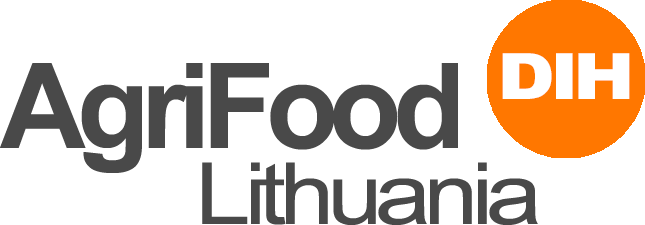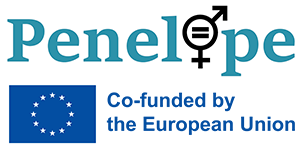

We would like to start with a short introduction.
Kristina Šermukšnytė-Alešiūnienė is a seasoned executive and innovation leader currently serving as the CEO of AgriFood Lithuania.
Kristina also holds the position of Director at the Lithuanian Cluster Network association, Klaster LT, which unites 57 clusters across diverse sectors. With over 12 years of international experience as a digitalization expert, she actively contributes to national and international working groups, driving digital transformation strategies. Currently pursuing a Ph.D. in economics, her research interests lie in evaluating the effectiveness of the twin transition in industries—digitalization and the Green Deal—in EU Member States.
Since 2021, Kristina has held pivotal leadership positions as Chairwoman of the Agri-Food and Bioeconomy Committee and the Labour, Social Policy, and Human Resources Committee at the Lithuanian Confederation of Industrialists. Her influence extends globally, as she was appointed Vice-Chair of the Food and Agriculture Committee at Business at OECD in 2022. Her remarkable achievements in the industry have earned her the title of European Cluster Manager of The Year and a nomination for the EIT Women Leadership award by the EIT Food community. She is a sought-after speaker at national and international events, where she shares insights on the twin transition in the EU and actively promotes collaboration for the creation of ecosystems that transform the food sector. An advocate for fostering collaboration between clusters and European digital innovation hubs, Kristina is the driving force behind strategic initiatives, including organizing prominent events in the Baltics, such as the AgriFood Forum, Digital Sea, HAck AgriFood, Startup Village Networking event, and Hack StartUp Village, Empowering Women in AgriFood (EWA) and others.
Could you describe your organisation in a few words?
AgriFood Lithuania is a dynamic cluster organization established in 2011, in Vilnius, Lithuania. It plays a crucial role in fostering innovation and transformation in the agriculture, food, and associated sectors, primarily through digital-based solutions. The cluster has earned recognition from the European Commission as a model digital innovation hub, and its ability to serve as a bridge between technology and the agri-food sector. From 2022 AgriFood Lithuania is a part of the European Digital Hnnovation Hub EDIHLT with one of the priorities for agrifood sector.
Could you give us some facts and figures, or a description of the status-quo related to the situation of gender equality in your region? What are the challenges encountered?
Similar to other Baltic states (Estonia and Latvia), the agrifood industry in Lithuania has undergone substantial changes in recent decades. The agricultural sectors of these nations are vital to their economies due to their rich agricultural histories and enormous potential. Nonetheless, gender equality in this industry is indicative of more extensive societal patterns and obstacles. Some of these are:
- Workforce Participation: The Baltic region exhibits a significant presence of women in the agrifood workforce. Their responsibilities, however, are frequently limited to lower-paying, less secure positions. For instance, while women constitute a substantial proportion of the agricultural workforce in Lithuania, they are inadequately represented in positions of authority.
- Leadership and Ownership: In comparison to men, a smaller proportion of women hold leadership positions or own agricultural enterprises. This is prevalent throughout the Baltics, where traditional perspectives frequently restrict the duties of women to particular occupations within the industry.
- Income Disparity: A discernible gender wage disparity exists within the agrifood industry. In Lithuania and other Baltic states, women frequently receive lower compensation than men for performing comparable duties and obligations.
- Social Norms and Perceptions: In the agrifood industry, traditional gender roles and stereotypes continue to dictate who performs which categories of work. This phenomenon has the potential to restrict the progress and involvement of women in decision-making procedures.
- Work-Life Balance: As in numerous other regions, women in the Baltics are disproportionately impacted by the difficulty of balancing professional and familial obligations. This may impede their professional advancement and engagement in the industry.
- Policy and Representation: The agrifood industry requires policies that are more attuned to gender issues. Insufficient representation of women in agricultural policy-making bodies hinders the effective consideration of their needs and perspectives.
What levers do you see possible to address these challenges or to improve the situation you just described? Where do you see clusters playing a role in the process?
To effectively address gender equality challenges in the agrifood sector in Lithuania and the Baltic region, specific, actionable strategies are needed, with clusters playing a key role in their implementation:
- Clusters can establish programs for women’s leadership development and skills training, enhancing their presence in higher-level roles.
- Collaborate with financial institutions to offer gender-sensitive lending and create workshops to improve financial literacy among women in the sector.
- Use clusters to host networking events, fostering collaboration and support among women in agriculture. Clusters can bring together various stakeholders to focus on gender equality initiatives.
- Leverage the influence of clusters to advocate for and develop gender-inclusive policies within the agrifood sector.
- Promote policies for flexible working arrangements and childcare support, helping women balance professional and personal responsibilities. Clusters’ influence can drive policy changes and industry standards towards gender inclusiveness.
- Publicize achievements of women in the sector to inspire and challenge stereotypes. As a central hub, clusters can disseminate information, best practices, and provide necessary training resources.
- Clusters can help women entrepreneurs and workers gain access to new markets and business opportunities.
Do companies of your cluster, sector/ecosystem, region face recruitment difficulties? Would you say that gender mainstreaming or gender equality approaches offer a solution to overcome these difficulties and why?
Companies in the Baltic agrifood sector do face recruitment challenges due to factors like skilled labor shortages and urban migration. Adopting gender mainstreaming and equality approaches can help overcome these difficulties in several concrete ways:
- Expanding Talent Pool: Embracing gender equality opens up the sector to a wider array of talents, particularly women who may have previously overlooked opportunities in agrifood due to existing biases.
- Tapping Into Untapped Resources: Women, especially in leadership roles, represent a largely underutilized resource. Leveraging their skills and perspectives can address existing skill gaps.
- Fostering Innovation: Gender-diverse teams are often more innovative and effective, an essential quality for a sector evolving with technological and environmental changes.
- Enhancing Sector Appeal: Gender-inclusive policies can improve the sector’s image, making it more attractive to a broader range of job seekers.
- Creating Inclusivity: A gender-equal workplace culture is not only appealing for recruitment but also crucial for employee retention.
Are the companies in your cluster aware of gender equality rules? Do they know how to comply with these rules? What would be helpful for them?
In the Baltic agrifood sector, the companies’ awareness of gender equality rules and their compliance with these may vary. While larger companies might be more informed and compliant, smaller enterprises could lag behind due to limited resources or traditional views. To improve awareness and compliance, specific measures can be highly effective:
- Training Programs: Conduct targeted training sessions for all company levels to educate about gender equality principles and laws.
- Webinars and Online Learning: Offer easily accessible webinars and online materials, particularly beneficial for the geographically dispersed agrifood sector.
- Dedicated Gender Equality Roles: Establish a designated person or team within companies to handle gender equality matters, ensuring adherence and providing a go-to resource.
- Sector-Wide Initiatives: Encourage participation in industry initiatives or clusters focusing on gender equality for shared learning and resources.
- Policy Guidance: Provide specialized support for developing and implementing gender-sensitive policies, especially crucial for smaller businesses.
- Overall, a combination of educational initiatives, dedicated roles for gender issues, and collaborative efforts led by industry bodies can significantly enhance gender equality awareness and compliance in the Baltic agrifood sector.
Could you please describe why gender equality is important for you personally and/or for your organization?
For me, personally: I am committed to gender equality because I believe in the fundamental right to equal opportunities for everyone, regardless of gender. This conviction is reinforced by an awareness of the unique challenges women face in the agrifood sector. I strongly believe in collaboration and adding more value to the sector. And, as a leader, I recognize my responsibility in setting an example and advocating for changes that promote inclusivity and diversity in leadership within the agrifood industry.
For my organization, Agrifood Lithuania: We understand that gender-balanced teams drive innovation and enhance performance. Gender equality is not just a moral imperative but a business strategy that contributes to a more dynamic and successful organization. And as an organization committed to the sustainable growth of the agrifood sector, we see gender equality as essential. It enables us to leverage the full spectrum of talent, to address workforce challenges, and to adapt to market and environmental changes. Our role as a cluster organization includes advocating for policies and practices that benefit the entire industry. Gender equality is integral to creating a resilient and competitive agrifood sector, and we actively promote this within our community and through our collaborations.
How would you describe the added value being a woman leading a cluster and thus leading an industrial sector so to say? What are your challenges and opportunities being a woman cluster manager?
Leading Agrifood Lithuania, my role as a woman in a leadership position brings distinct advantages and unique challenges in driving industrial and policy change.
Added value as a female leader
My perspective as a woman enriches decision-making with diverse insights, crucial for innovation in the agrifood sector.I bring an empathetic and inclusive approach to leadership, fostering a collaborative environment. And last, but not least, my presence in this role challenges gender norms and inspires other women to aspire to leadership positions. A key challenge I see is breaking through traditional stereotypes about women’s roles in leadership, overcoming biases. Building Networks is important, and while creating alliances can be challenging, it also opens opportunities for meaningful connections based on shared experiences. Finally, balancing professional and personal responsibilities is a significant challenge, amplified by societal expectations.
What would be your closing word? Your main message on advancing gender equality approaches in companies/clusters/public authorities/governments?
Reflecting on the discussions about gender equality in the agrifood sector and my role as a leader in Agrifood Lithuania, my closing words center around a core message of commitment and action. Advancing gender equality in companies, clusters, public authorities, and governments is not just a matter of fairness or compliance; it’s a strategic imperative for sustainable growth, innovation, and societal advancement. It is time that we move beyond acknowledging gender inequality to actively implementing inclusive policies and practices in every organization and that leaders at all levels must champion gender equality, setting a powerful example and driving change!


